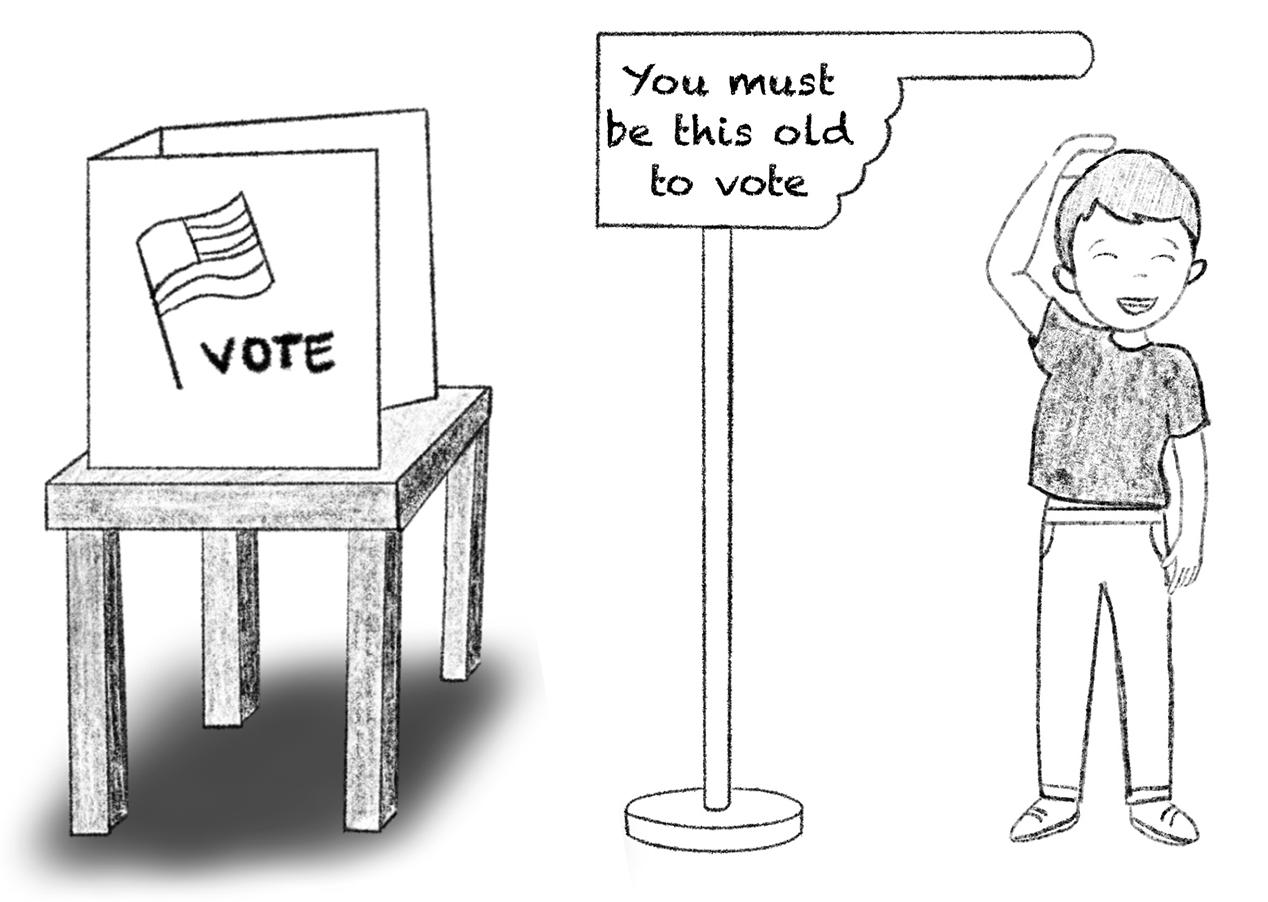
3 minute read
American democracy allows for citizens to participate in the government through voting. In California, citizens can vote on anything from elected officials to amendments to the state constitution to certain propositions. And when the clock strikes midnight on a citizen’s 18th birthday, they are immediately eligible to vote. In discussions about voting age, some argued that the right should be granted later and others argued that it should be earlier, but 18 is a strong “Goldilocks” time for the responsibility to impact democracy to be given.
There has been a recent push among progressive political theorists to lower the voting age to 16. According to Vote16USA, a campaign whose primary goal is to lower the voting age to 16, a lowered voting age would have many benefits, such as making voting a habit and providing young people with a bigger stake in the political scene. In saying this, the campaign is referring to the fact that 16-year-olds can work “adult hours,” can be taxed and can be tried in criminal courts as adults. However, none of those actions should be considered fit for minors.
Building a habit by the time they are 18, while logically plausible, also really just reinforces that 16-year-olds are not ready to vote at 16 anyways. We are essentially training 16-year-olds to be effective voters at age 18, implying that they are not expected to be fully ready to vote at 16 regardless. Granting 16-year-olds the right to vote so that they are doing it consistently by the time they are adults is just prepping them to be full voters by 18. Schools can also work to build this habit by teaching and exposing students to civics before they are legal voters so that we are not putting the responsibility onto children when they are not ready to hold it.
Advertisement
In addition, their concerns about equal representation are flawed in that they stem from situations that are either outliers or generally not accepted as positive. As of 2020, 17.6 percent of 16 to 19-year-olds worked, showing that working is atypical for young adults. Therefore, decreasing the voting age to compensate for teenagers working is an incorrect solution to this problem.
Furthermore, unfortunately, in California, 75 percent of youth are tried as adults. Serving adult sentences in adult prisons makes children 34 percent more likely to be rearrested once released. Often, sentencing children to adult prisons is at least partly in an effort to save money. Housing an adult inmate costs around $60,000 a year in California whereas housing a juvenile inmate costs around $300,000. Clearly, charging children as adults has an agenda behind it and is often ineffective from a rehabilitation standpoint, as well as being generally unfair. Just as with working adult hours, using the vote to compensate is not the right solution.
Those who argue that the voting age should be raised generally argue that it should be raised to 21 because 18-yearolds are often still in high school, making them more likely to be influenced by beliefs other than their own.
Before graduating, 18-year-olds will have the cushion of their high school educations as well the experience of the rest of their high school careers. These factors will support 18-year-olds in making educated decisions, but, almost more importantly, they will have more life experience than a 16-year-old would, further aiding them in their voting decisions.
16 and 17-year-olds tend to still be in high school as well, granting them the same cushion, but they also have not been through as much of high school as an 18-year-old. High school is typically referred to as a very formative part of a person’s life; 18-year-olds are nearing the end of that formative time and 16-yearolds are still near the beginning. So, despite two years not being a very long gap, it makes a large difference because of the nature of that time frame.
Rights other than voting are granted at 18, so clearly it has been deemed that 18 years of age garners a certain level of life experience and maturity. Besides just being recognized as legal adults, 18 is the legal age of consent in California and 18-year-olds have to jump through considerably less hoops in getting a driver’s license than 16-year-olds. Lowering the voting age would simply create inconsistencies in our laws and 18 is a perfect sweet spot for democratic capability.
Staff illustration: Sutton Inouye & Michele Hratko









